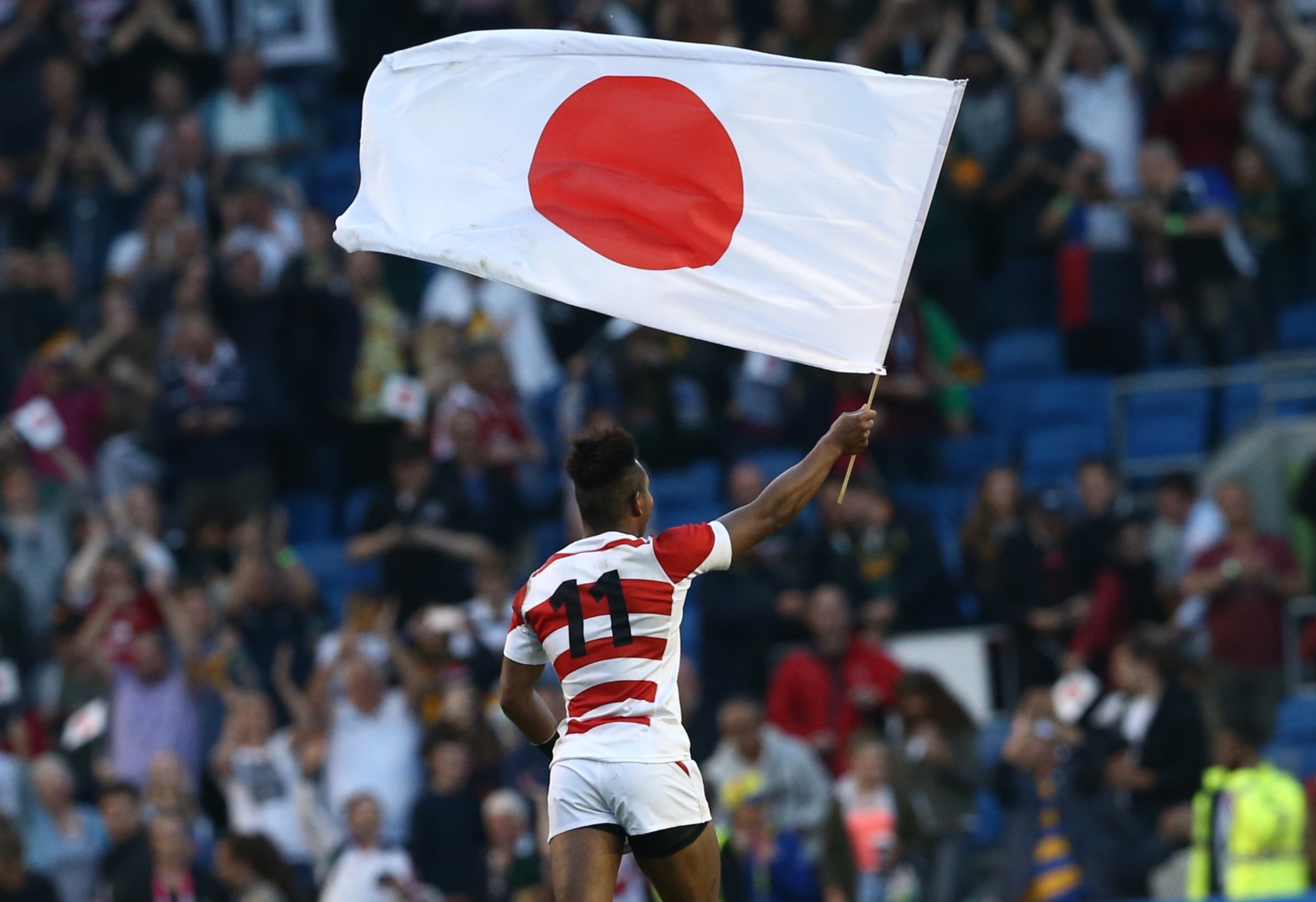The eyes of the rugby world will be on Japan in a year when the Brave Blossoms take on Russia at Tokyo Stadium on Sept. 20, 2019, in the opening game of the ninth Rugby World Cup.
In a bid to break away from the sport's traditional venues and pick up new fans and players in Asia, the world's most populous continent, World Rugby opted in 2009 to hand the tournament to Japan.
While there have been a few hiccups along the way — most notably the dropping of the new National Stadium as the venue for the final — the country is slowly but surely getting ready to host what is now the third-largest sporting event in the world.
Initial construction of the only stadium to be purpose built for the tournament has been completed in Kamaishi, Iwate Prefecture, while Kumagaya, in Saitama Prefecture, and Hanazono, in Osaka Prefecture — two of the oldest rugby grounds in the country -— have both been totally refurbished.
"From match venues, team camps and host cities readiness, to the ticketing and volunteering programs and tournament budget, strong progress has been made," Rugby World Cup Ltd. CEO Alan Gilpin said recently.
Played over six weeks in 12 venues from Sapporo in the north to Kumamoto in the south, 400,000 foreigners are expected to travel to Japan to watch the 20 participating countries do battle in front of a total audience of 1.8 million.
And with general ticket sales having started on Sept. 19, following a number of previous ballots aimed at local residents and supporters groups, organizers have been delighted at the response with 2.5 million tickets applied for.
"Demand for Rugby World Cup 2019 tickets has been incredibly strong with more than 70 percent of the available inventory sold during the initial sales ballots that ran until June this year," said Rugby World Cup 2019 Organizing Committee President and CEO Akira Shimazu.
"However, with additional tickets now available, there is a great opportunity to secure tickets to all matches and be a part of what will be a wonderful Rugby World Cup tournament and a once-in-a-lifetime opportunity for Japan."
Shimazu said the highest demand for matches was in games "featuring the host nation Japan, world champions New Zealand, as well as Ireland, Australia and England, with interest across the knockout stages also incredibly strong.
"However, there are many great fixtures for which match tickets are still readily available, so my message to those fans who have not yet been successful is to apply again in this upcoming ballot. We want to ensure that we welcome as many fans as possible to this once-in-a-lifetime tournament."
Despite the impressive pre-sales, World Rugby and Japan Rugby 2019 have ensured would-be fans there are plenty of tickets left for the general public.
The next round of sales — more information for which, including how to register, can be found at the official site — lasts until Nov. 12 with oversubscribed matches being entered into a ballot system.
Any tickets that are then still available will be made available from Jan. 19, 2019, on a real-time first-come-first-served basis.
To make things easier, World Rugby has set up a traffic-light indicator on the ticketing site to give potential purchasers the best chance of securing tickets.
"By choosing matches that are green or amber, fans have a far greater chance of being part of what is shaping up to be a truly once-in-a-lifetime event," World Rugby said in a statement.
The site also recommends the use of tournament sponsor Mastercard, as fans can double their chances by securing a double entry with their ticket ballot application.
With rugby's governing body very aware it is treading into new frontiers, a tie-up was also recently announced with the ChildFund Pass It Back program.
In partnership with World Rugby's Impact Beyond program, Pass It Back inspires "positive social change through the delivery of an integrated life-skills and non-contact tag rugby curriculum, educating children and young people in areas of leadership, problem-solving, gender equality, conflict resolution and life preparation."
The program has already made a huge impact in countries such as Laos and Vietnam and organizers are hoping that Rugby World Cup ticket purchasers opt to donate a small sum when buying tickets to ensure the program has an even greater reach.
As host, Japan is also hoping the tournament has a big impact not just in terms of developing rugby here but also in terms of tourism and the economy.
While the 12 match-day venues — and traditional tourist hot spots such as Kyoto and Hiroshima — will receive the bulk of visitors, many other towns and municipalities are busy making preparations for the World Cup with more than 50 official training venues having been selected across the country.
South Africa, England, Wales and Scotland have all announced they will spend time in Kyushu prior to their first games.
Two-time defending champion New Zealand will be in Kashiwa City in Chiba Prefecture, the U.S. Eagles are set to train in Okinawa and Argentina will make use of the recently reopened J-Village in Fukushima.
As tournament organizers have stressed, this is not just a once-in-four-years opportunity for Japan, it is once in a lifetime.
"Japan is in for a real treat," two-time Rugby World Cup winner and Kobe Kobelco Steelers flyhalf Dan Carter said last week of the event.
His compatriot, NTT Docomo Red Hurricanes flyhalf Marty Banks, meanwhile tweeted it is the foreigners coming here who will be in for an unforgettable trip.
"Experienced something pretty awesome yesterday, after we won our game the opposition supporters started to chant OUR team name . . . unheard of anywhere else in the world!!! Japan is going to make for an unreal RWC 2019."




















With your current subscription plan you can comment on stories. However, before writing your first comment, please create a display name in the Profile section of your subscriber account page.